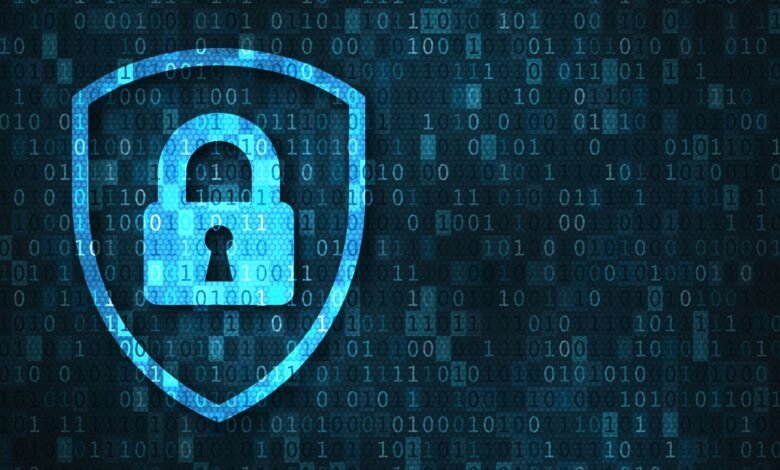How to Secure Your Privacy in a World of Surveillance Tech in 2023

In today’s rapidly evolving digital landscape, the importance of securing your privacy cannot be overstated. With advancements in surveillance technology, it has become increasingly challenging to keep our personal information and data safe from prying eyes. This article will guide you through effective strategies and tools to protect your privacy in the year 2023.
As we step into 2023, the digital realm is more interconnected and data-driven than ever before. While technology has undoubtedly made our lives more convenient, it has also raised serious concerns about privacy. Your personal data, including your online activities, browsing habits, and even physical movements, are constantly being tracked and analyzed. This article aims to empower you with the knowledge and tools to reclaim control over your privacy in this era of surveillance technology.
Understanding the Surveillance Landscape
The first step in securing your privacy is understanding the extent of surveillance in today’s world. Government agencies, corporations, and malicious actors employ various tools and techniques to monitor individuals and collect data.
Privacy Threats in 2023

In 2023, privacy threats are more sophisticated than ever. From data breaches and identity theft to invasive surveillance practices, it’s crucial to be aware of the risks you face.
Strengthening Your Digital Footprint
To protect your online identity and data, consider the following steps:
Embracing Strong Passwords
Create unique, complex passwords for each online account and use a reliable password manager to keep track of them.
Two-Factor Authentication
Enable 2FA wherever possible to add an extra layer of security to your accounts.
Regular Software Updates
Keep your operating systems, apps, and software updated to patch vulnerabilities.
Guarding Your Online Communication
Securing your digital conversations is essential:
Encrypted Messaging Apps
Use encrypted messaging apps like Signal or WhatsApp to ensure your messages are private.
Email Security
Employ end-to-end encryption for sensitive emails and avoid sharing sensitive information via email.
Secure Browsing Habits
Protect your online activities from prying eyes:
Virtual Private Networks (VPNs)
Use a VPN to encrypt your internet connection and hide your IP address.
Browser Privacy Extensions
Install browser extensions that block trackers and ads, enhancing your online privacy.
Social Media and Privacy
Your social media presence can be a treasure trove of personal information:
Privacy Settings
Review and customize your social media privacy settings to limit data exposure.
Limiting Personal Information Sharing
Be mindful of what you share online and avoid disclosing sensitive details.
Protecting Your Smart Devices
Smart devices are often vulnerable targets:
Smartphones and Privacy
Secure your smartphone with a PIN or biometric lock and review app permissions.
IoT Devices Security
Change default passwords on IoT devices and keep their firmware up to date.
Data Backups and Encryption
Ensure the safety of your data:
Regular Backups
Frequently back up your important data to prevent loss in case of a breach.
File and Disk Encryption
Encrypt sensitive files and entire disks to safeguard your information.
Cybersecurity Awareness
Being vigilant is crucial:
Recognizing Phishing Attempts
Learn to identify phishing emails and messages and avoid falling victim to scams.
Educating Yourself
Stay informed about emerging threats and best practices for online security.
Legal Rights and Privacy Regulations
Know your rights and the laws that protect your privacy:
Data Protection Laws
Familiarize yourself with data protection laws in your region.
Know Your Rights
Understand your rights concerning data access, deletion, and consent.
Privacy in Public Spaces
Even in public, your privacy matters:
Surveillance Cameras
Be aware of surveillance cameras in public places and respect your privacy.
Public Wi-Fi Risks
Avoid using public Wi-Fi for sensitive transactions, as it can be insecure.
Biometrics and Privacy
Biometric data is unique and sensitive:
Facial Recognition
Consider disabling facial recognition on your devices if you value your privacy.
Fingerprint Scanners
Use fingerprint scanners cautiously, as they store biometric data.
Balancing Convenience and Privacy
Striking a balance is key:
Location Tracking
Limit location tracking to apps that truly need it.
Personalization vs. Privacy
Understand the trade-off between personalization and privacy in online services.
The Future of Secure Your Privacy in a World of Surveillance Tech in 2023

In today’s digital age, where technology has infiltrated every aspect of our lives, the concern for privacy has become more critical than ever before. With the advent of surveillance technology, it seems like our every move is being watched, analyzed, and potentially exploited. However, as we step into 2023, the future of securing your privacy offers both challenges and solutions. In this article, we will explore the evolving landscape of privacy in the face of surveillance technology and how individuals can protect themselves in this brave new world.
Understanding the Surveillance Tech Landscape
Before delving into the future of privacy, it’s essential to grasp the current state of surveillance technology. In 2023, surveillance tech has reached unprecedented levels of sophistication. Governments, corporations, and even cybercriminals employ a vast array of tools, from facial recognition systems to data mining algorithms, to collect and analyze personal information.
The Proliferation of Data Collection
One of the biggest challenges to privacy is the sheer amount of data being collected. Our online activities, social media interactions, and even physical movements are constantly being recorded. With 5G technology and the Internet of Things (IoT) becoming more prevalent, data collection is more pervasive than ever.
The Role of Artificial Intelligence
Artificial Intelligence (AI) is a driving force behind surveillance tech’s rapid advancement. Machine learning algorithms can predict behavior, making it easier to target individuals with personalized advertisements or, in some cases, intrusive surveillance.
The Challenges Ahead
As we look to the future, several challenges will continue to shape the landscape of privacy and surveillance technology.
Privacy Regulations
Governments around the world are grappling with how to regulate the use of surveillance technology. Striking a balance between security and individual privacy remains a contentious issue. Privacy advocates push for stricter regulations to protect citizens, while security agencies argue for more extensive surveillance powers.
Cybersecurity Threats
With the rise in surveillance tech, there’s a corresponding increase in cybersecurity threats. Hackers and cybercriminals exploit vulnerabilities in surveillance systems to gain access to sensitive data. This poses a significant risk to individuals and organizations alike.
Protecting Your Privacy in 2023
While the challenges are daunting, individuals can take proactive steps to secure their privacy in this surveillance-centric world.
Encryption and VPNs
Using encryption tools and virtual private networks (VPNs) can help protect your online communications and activities from prying eyes. These technologies ensure that your data remains confidential even in transit.
Privacy-Focused Browsers
Consider using privacy-focused web browsers like Brave or DuckDuckGo. These browsers prioritize user privacy by blocking trackers and ads that collect your data.
Secure Your Smart Devices

With the proliferation of smart devices, securing your home network is crucial. Change default passwords, enable two-factor authentication, and regularly update firmware to protect against potential breaches.
Conclusion
In 2023, securing your privacy is an ongoing process that requires vigilance and awareness. By following the strategies outlined in this article, you can take significant steps toward protecting your personal information from the ever-watchful eyes of surveillance tech.
Read more : How to Implement Blockchain Technology in Your Industry in 2023
FAQs
What is the most secure way to create a strong password?
The most secure way is to use a combination of upper and lower-case letters, numbers, and special characters. Avoid using easily guessable information like birthdays or common words.
Are VPNs legal to use for privacy protection?
Yes, VPNs are legal in most countries and are widely used to enhance online privacy and security.
How can I recognize a phishing email?
Look for suspicious email addresses, grammatical errors, and requests for personal information. Always verify the sender’s legitimacy before taking any action.
What are the potential risks of public Wi-Fi?
Public Wi-Fi networks are often unsecured, making it easier for hackers to intercept your data. Avoid accessing sensitive accounts or conducting financial transactions on public Wi-Fi.
Why is biometric data considered sensitive?
Biometric data, such as fingerprints or facial recognition, is unique to an individual and cannot be changed if compromised, making it a valuable target for identity theft.
Read more : How to Utilize 5G Technology for Faster Connectivity in 2023








One Comment